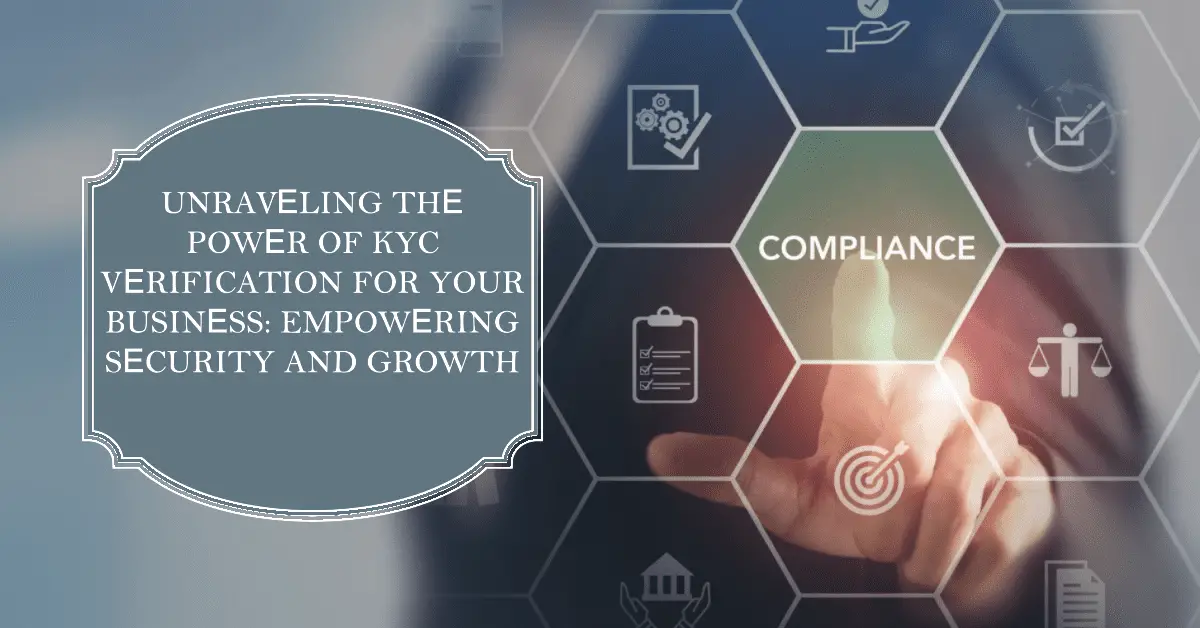
In today’s digital world, the concepts of KYC (Know Your Customer) and AML (Anti-Money Laundering) have become crucial for businesses across various industries. These practices ensure that companies comply with legal regulations and protect themselves and their customers from fraudulent activities. But what exactly are KYC and AML, and why are they so important? Let’s dive into the details to understand their significance and implementation.
What is KYC?
KYC, or Know Your Customer, is a process used by businesses to verify the identity of their clients. This verification process is crucial for ensuring that customers are who they claim to be, thereby preventing fraud and identity theft. The primary goal of KYC is to establish and verify the identity of customers through reliable and independent documentation.
Key Components of KYC:
Customer Identification Program (CIP): This involves collecting and verifying basic information about the customer, such as name, address, date of birth, and identification numbers.
Customer Due Diligence (CDD): This step includes assessing the risk profile of the customer and understanding the nature of their relationship with the business.
Enhanced Due Diligence (EDD): For customers posing a higher risk, additional scrutiny is applied to ensure thorough verification.
What is AML?
AML, or Anti-Money Laundering, refers to the laws, regulations, and procedures implemented to prevent criminals from disguising illegally obtained funds as legitimate income. AML regulations require financial institutions and other regulated entities to monitor and report suspicious activities that might indicate money laundering or other financial crimes.
Key Components of AML:
Risk Assessment: Identifying and assessing the risks of money laundering that a business might face.
Internal Controls: Establishing policies and procedures to detect and prevent money laundering activities.
Monitoring and Reporting: Continuously monitoring transactions and reporting suspicious activities to relevant authorities.
The Importance of KYC AML
KYC AML are not just regulatory requirements; they play a vital role in maintaining the integrity of financial systems. Here’s why they are so important:
Preventing Fraud: By verifying the identity of customers and understanding their financial behavior, businesses can prevent fraud and protect themselves from financial losses.
Compliance with Laws: Adhering to KYC AML regulations helps businesses avoid hefty fines and legal repercussions.
Building Trust: Implementing robust KYC AML practices builds trust with customers, as they feel secure knowing that their personal information is protected.
Mitigating Risks: Identifying and mitigating risks associated with money laundering and terrorist financing safeguards the business’s reputation and operations.
Implementing KYC AML Practices
Implementing effective KYC AML practices involves several steps and the use of technology to streamline the process. Here’s a comprehensive approach to implementing these practices:
Develop a Clear Policy: Establish a clear KYC and AML policy that outlines the procedures for customer verification, risk assessment, and reporting.
Leverage Technology: Use advanced technology solutions such as artificial intelligence and machine learning to automate the verification and monitoring processes.
Training and Education: Regularly train employees on KYC and AML regulations, ensuring they understand the importance and execution of these practices.
Conduct Regular Audits: Perform regular audits and reviews of your KYC and AML procedures to ensure compliance and identify areas for improvement.
Collaborate with Authorities: Work closely with regulatory authorities and other financial institutions to stay updated on the latest regulations and best practices.
Challenges in KYC AML Compliance
While the importance of KYC AML is clear, businesses often face challenges in complying with these regulations. Some common challenges include:
Evolving Regulations: Keeping up with constantly changing regulations can be daunting for businesses, especially those operating in multiple jurisdictions.
Data Privacy Concerns: Balancing the need for customer information with data privacy laws can be tricky, as businesses must ensure they are not violating privacy rights.
Operational Costs: Implementing and maintaining KYC AML practices can be costly, requiring significant investment in technology and resources.
False Positives: Automated systems may generate false positives, leading to unnecessary scrutiny and potential customer dissatisfaction.
Future Trends in KYC AML
The landscape of KYC AML is continuously evolving, driven by technological advancements and changing regulatory environments. Here are some trends to watch:
AI and Machine Learning: The use of artificial intelligence and machine learning is set to revolutionize KYC and AML practices, making them more efficient and accurate.
Blockchain Technology: Blockchain can enhance transparency and security in KYC processes by providing immutable records of customer information.
RegTech Solutions: Regulatory technology (RegTech) solutions are emerging to help businesses manage compliance more effectively and cost-efficiently.
Global Collaboration: Increased collaboration between countries and financial institutions is likely to improve the effectiveness of AML efforts on a global scale.
Conclusion
KYC AML are indispensable practices for businesses in today’s digital age. They not only help in complying with legal regulations but also play a crucial role in preventing fraud, building trust, and mitigating risks. By understanding and implementing effective KYC and AML practices, businesses can protect themselves and their customers from financial crimes and contribute to the integrity of the financial system.
Remember, staying ahead in the game of KYC AML compliance requires continuous learning and adaptation to the evolving regulatory landscape and technological advancements. So, keep abreast of the latest trends and best practices to ensure your business remains compliant and secure.